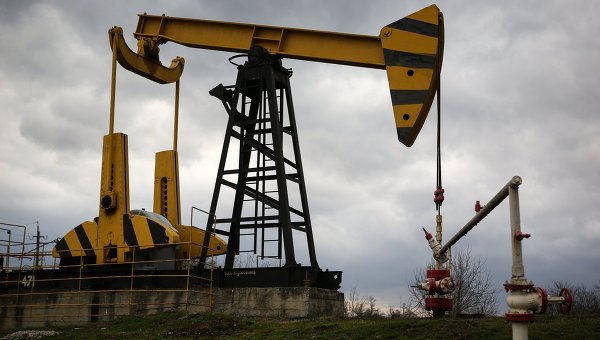BAKU, Azerbaijan, Feb.22
By Leman Zeynalova – Trend:
Due to the overweight importance of Chinese demand on oil prices a prolonged epidemic in China is likely to pressure oil lower through the first half of 2020, Trend reports with reference to Fitch Solutions Macro Research (a unit of Fitch Group).
The scale of the impact of the 2019-nCoV epidemic on oil prices will be heavily influenced by the timeframe for containing the outbreak, as well as the shape and the magnitude of the Chinese government’s response, reads the report released by Fitch Solutions.
"Should the containment of the virus be over a prolonged period of time, if efforts to contain the virus fall short, the impact on demand could be far more severe. The fuels demand impact from the virus is likely to be most keenly felt by jet fuel, with air travel grinding slower as domestic routes in China and international routes are closed or limited. Likewise the impact on diesel markets has already been seen, with gasoil crack spreads having dropped to multi-year lows through the third week of January as markets factor in lower transport demand, alongside existing weakness from a mild northern hemisphere winter and lacklustre price support from IMO 2020," said the company.
Fitch Solutions believes that over the longer term, there is a risk to economic growth in China as services, business and consumption are hit by the ongoing disruption.
"Reduced travel over the lunar New Year holiday, the complete closure of public transport in several large cities and closure of a wide range of offices and business will all reduce headline fuels demand and weigh on GDP growth."
For jet fuel in particular, compared to 2003, China consumes approximately five times more of the fuel a year, with air travel having proliferated domestically and intra-regionally, said the company.
"China traveler numbers have boomed by almost 10 times over the same period. We see the risk of a greater impact on demand through the shutdown of this sector, particularly if the outbreak spreads more readily outside of the country as more countries ban or restrict flights into China," said Fitch Solutions.
For Chinese refined fuel consumption, the company forecasts a more modest rate of growth of 2.3 percent for 2020, slowing from an average annual growth of 5 percent seen over the past decade as China’s economy continues to reorient itself around less fuel-intensive and more consumer and service-driven segments.
"Within the fuels basket, we had flagged expectations for jet fuel to outperform, with diesel and gasoline showing weakness in the face of slumping passenger car sales, slowing economic growth, stricter emission rules and competition from alternative-fuel vehicles. However in light of the 2019-nCoV outbreak, we expect demand for air travel, both passenger and freight, to come under real pressure, weakening jet fuel demand and weighing on the overall growth story for refined fuel domestically," reads the report.
Fitch Solutions draws attention to the fact that the impact of the SARS outbreak in 2003 destroyed jet fuel demand growth in China through the year and had an impact on quarterly GDP through the second and third quarters.
"Whilst we do believe that the most recent 2019-nCoV outbreak will see demand for key transportation fuels reduced, we are cautious of using historical comparisons to quantify the impact of the current outbreak. Compared to 17 years ago, China now consumes more jet fuel as a proportion of the total fuels demand- around 6 percent as opposed to 4 percent back in 2003 - , likewise the impact on GDP will also be different due to the growth in the services and retail sectors since the previous SARS incident. Together this creates a series of unknown factors affecting headline demand. Importantly, the response by China suggests a more effective reaction to the outbreak than in previous iterations such as SARS in 2003."
---
Follow the author on Twitter: @Lyaman_Zeyn






